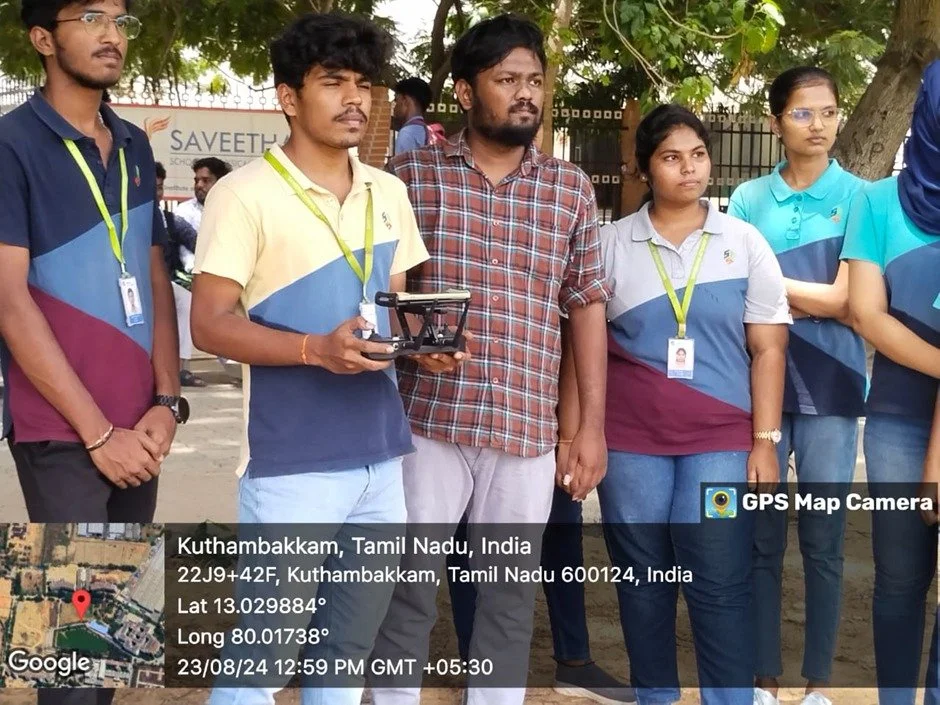Agricultural Engineering has seen remarkable advancements with the integration of modern technology, revolutionizing traditional farming practices. SIMATS Engineering has adopted cutting-edge techniques such as drones, advanced tillers, and precision farming tools to enhance productivity, sustainability, and efficiency in agriculture. These innovative methods play a crucial role in addressing contemporary challenges such as labour shortages, climate change, and resource conservation.
One of the most impactful technologies implemented at SIMATS Engineering is the use of agricultural drones. These drones are designed to support precision agriculture by providing real-time monitoring and analysis of crops. They are equipped with high-resolution cameras and multispectral sensors that enable farmers to assess crop health, detect pest infestations, and analyze soil conditions. By utilizing GPS and AI-driven analytics, these drones can create detailed field maps, allowing for targeted irrigation, fertilization, and pesticide application. Students and researchers at SIMATS Engineering actively engage in developing drone-based solutions for sustainable irrigation and organic nutrient delivery. Additionally, hybrid drones that function on both battery and fuel ensure continuous operation even in remote agricultural lands. This integration of drone technology not only enhances efficiency but also significantly reduces costs and environmental impact.
Another modern technique widely adopted at SIMATS Engineering is the use of advanced tillers. Traditional tilling methods often led to soil degradation and excessive fuel consumption. However, with the advent of power tillers and smart ploughing machines, the process has become more efficient and eco-friendlier. These tillers are equipped with GPS technology and automated controls, allowing farmers to maintain precise soil aeration and seedbed preparation. The smart tillers used at SIMATS Engineering are also designed to optimize fuel consumption and minimize emissions, promoting sustainable farming practices. Moreover, these machines help reduce labour dependency by enabling mechanized operations, thus addressing workforce shortages in the agricultural sector.
Apart from drones and tillers, precision farming techniques have been widely promoted at SIMATS Engineering. Precision agriculture involves the use of IoT-enabled sensors, AI-driven decision-making, and automated machinery to optimize farming practices. Smart irrigation systems, for instance, utilize soil moisture sensors to determine the exact amount of water required for crops, reducing water wastage and improving yields. These systems are integrated with weather forecasting models to adjust irrigation schedules based on climate conditions, ensuring efficient water management. Similarly, autonomous tractors and robotic seeders contribute to precision planting by calculating the optimal depth and spacing for each seed, maximizing growth potential and minimizing resource consumption.
Furthermore, SIMATS Engineering has established state-of-the-art laboratories and research facilities to support the development and testing of these modern agricultural technologies. The university conducts workshops and training programs to educate students on the latest advancements in drone applications, mechanized farming, and AI-powered agricultural solutions. Research collaborations with industry leaders and government bodies have further enhanced the implementation of these technologies, bridging the gap between academia and real-world farming practices.





